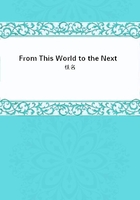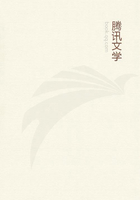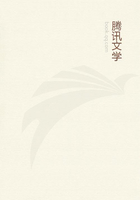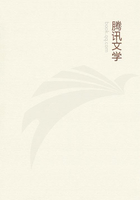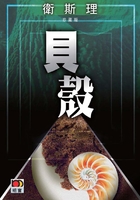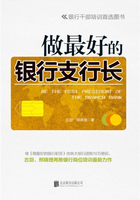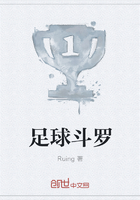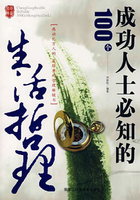(that is Aristotle, you know, said the monk, squeezing my hand); 'quod fit a principio cognoscente singula in quibus est actio- which is done by a person knowing the particulars of the action; so that when the will is led inconsiderately, and without mature reflection, to embrace or reject, to do or omit to do anything, before the understanding has been able to see whether it would be right or wrong, such an action is neither good nor evil; because previous to this mental inquisition, view, and reflection on the good or bad qualities of the matter in question, the act by which it is done is not voluntary.' Are you satisfied now?" said the father.
"It appears," returned I, "that Aristotle agrees with Father Bauny; but that does not prevent me from feeling surprised at this statement.What, sir! is it not enough to make an action voluntary that the man knows what he is doing, and does it just because he chooses to do it? Must we suppose, besides this, that he 'perceives, knows, and comprehends what is good and evil in the action'? Why, on this supposition there would be hardly such a thing in nature as voluntary actions, for no one scarcely thinks about all this.How many oaths in gambling, how many excesses in debauchery, how many riotous extravagances in the carnival, must, on this principle, be excluded from the list of voluntary actions, and consequently neither good nor bad, because not accompanied by those 'mental reflections on the good and evil qualities' of the action? But is it possible, father, that Aristotle held such a sentiment? I have always understood that he was a sensible man." "I shall soon convince you of that, said the Jansenist, and requesting a sight of Aristotle's Ethics, he opened it at the beginning of the third book, from which Father Bauny had taken the passage quoted, and said to the monk: "I excuse you, my dear sir, for having believed, on the word of Father Bauny, that Aristotle held such a sentiment; but you would have changed your mind had you read him for yourself.It is true that he teaches, that 'in order to make an action voluntary, we must know the particulars of that action'- singula in quibus est actio.But what else does he means by that, than the circumstances of the action? The examples which he adduces clearly show this to be his meaning, for they are exclusively confined to cases in which the persons were ignorant of some of the circumstances;such as that of 'a person who, wishing to exhibit a machine, discharges a dart which wounds a bystander; and that of Merope, who killed her own son instead of her enemy,' and such like."Thus you see what is the kind of ignorance that renders actions involuntary; namely, that of the particular circumstances, which is termed by divines, as you must know, ignorance of the fact.But with respect to ignorance of the right- ignorance of the good or evil in an action- which is the only point in question, let us see if Aristotle agrees with Father Bauny.Here are the words of the philosopher:
'All wicked men are ignorant of what they ought to do, and what they ought to avoid; and it is this very ignorance which makes them wicked and vicious.
Accordingly, a man cannot be said to act involuntarily merely because he is ignorant of what it is proper for him to do in order to fulfil his duty.
This ignorance in the choice of good and evil does not make the action involuntary; it only makes it vicious.The same thing may be affirmed of the man who is ignorant generally of the rules of his duty; such ignorance is worthy of blame, not of excuse.And consequently, the ignorance which renders actions involuntary and excusable is simply that which relates to the fact and its particular circumstances.In this case the person is excused and forgiven, being considered as having acted contrary to his inclination.' "After this, father, will you maintain that Aristotle is of your opinion? And who can help being astonished to find that a Pagan philosopher had more enlightened views than your doctors, in a matter so deeply affecting morals, and the direction of conscience, too, as the knowledge of those conditions which render actions voluntary or involuntary, and which, accordingly, charge or discharge them as sinful? Look for no more support, then, father, from the prince of philosophers, and no longer oppose yourselves to the prince of theologians, who has thus decided the point in the first book of his Retractations, chapter xv: 'Those who sin through ignorance, though they sin without meaning to sin, commit the deed only because they will commit it.And, therefore, even this sin of ignorance cannot be committed except by the will of him who commits it, though by a will which incites him to the action merely, and not to the sin; and yet the action itself is nevertheless sinful, for it is enough to constitute it such that he has done what he was bound not to do.'" The Jesuit seemed to be confounded more with the passage from Aristotle, I thought, than that from St.Augustine; but while he was thinking on what he could reply, a messenger came to inform him that Madame la Marechale of- , and Madame the Marchioness of- , requested his attendance.So, taking a hasty leave of us, he said: "I shall speak about it to our fathers.They will find an answer to it, I warrant you; we have got some long heads among us."We understood him perfectly well; and, on our being left alone, I expressed to my friend my astonishment at the subversion which this doctrine threatened to the whole system of morals.To this he replied that he was quite astonished at my astonishment."Are you not yet aware," he said, "that they have gone to far greater excess in morals than in any other matter?" He gave me some strange illustrations of this, promising me more at some future time.The information which I may receive on this point will, I hope, furnish the topic of my next communication.I am, &c.

